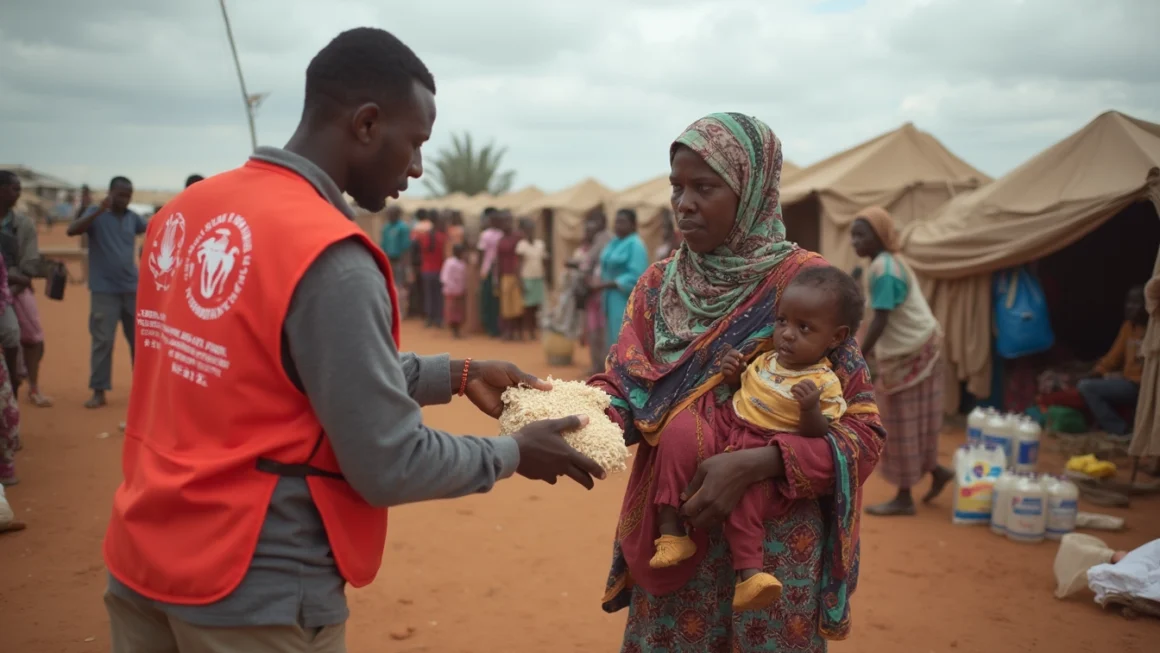The humanitarian crisis in Sudan continues to worsen, with alarming reports of famine conditions emerging in new areas. As conflict persists, millions face severe food insecurity and malnutrition, pushing the country to the brink of a catastrophic situation.
Expanding Famine Conditions
Table of Contents
Recent assessments have identified famine-like conditions in additional parts of Sudan, including Wad Medani in Al Jazirah state and Nyala in South Darfur. These findings paint a grim picture of the rapidly deteriorating food security situation across the country.
The World Food Programme (WFP) warns that without immediate action, famine could spread to other regions, potentially affecting millions more Sudanese citizens. The organization emphasizes the urgent need for humanitarian access and increased support to prevent further loss of life.
Factors Driving the Crisis
Ongoing Conflict
The persistent conflict in Sudan continues to disrupt agricultural activities, displace communities, and hinder the delivery of crucial aid. As fighting intensifies, more people are forced to flee their homes, leaving behind their livelihoods and sources of food.
Economic Challenges
Sudan’s economy has been severely impacted by the conflict, leading to soaring food prices and reduced purchasing power for many households. This economic instability further exacerbates the food security crisis, making it increasingly difficult for families to access adequate nutrition.
Climate-Related Issues
Irregular rainfall patterns and extreme weather events have contributed to crop failures and reduced agricultural productivity. These climate-related challenges compound the existing food shortages, particularly in rural areas heavily dependent on agriculture.
Humanitarian Response and Challenges
The WFP and other humanitarian organizations are working tirelessly to provide life-saving assistance to those most in need. However, their efforts face significant obstacles:
- Limited access to affected areas due to ongoing conflict and security concerns
- Insufficient funding to meet the growing needs of the population
- Logistical challenges in delivering aid to remote and conflict-affected regions
Despite these hurdles, aid agencies continue to explore innovative solutions to reach vulnerable populations. Automated systems for aid distribution are being considered to improve efficiency and overcome some of the logistical challenges faced in the field.
Urgent Call for Action
The international community must act swiftly to address the deepening food and nutrition crisis in Sudan. Key priorities include:
- Increasing funding for humanitarian operations
- Advocating for improved access to affected areas
- Supporting long-term resilience-building initiatives
- Addressing the root causes of conflict to create lasting peace
Without immediate and sustained intervention, the situation in Sudan risks spiraling into a full-scale humanitarian catastrophe with far-reaching consequences for the region and beyond.
Impact on Vulnerable Groups
Children and Mothers
The crisis has a particularly devastating impact on children and pregnant or lactating women. Malnutrition rates among these groups have reached alarming levels, with potential long-term consequences for child development and maternal health.
Displaced Populations
Internally displaced persons (IDPs) and refugees face unique challenges in accessing food and nutrition services. Many are living in overcrowded camps or informal settlements with limited resources and support.
Long-Term Implications
The ongoing food and nutrition crisis in Sudan has far-reaching implications beyond immediate hunger relief:
- Increased risk of social unrest and conflict escalation
- Potential for mass migration and regional instability
- Long-term health consequences for a generation of children
- Setbacks in economic development and poverty reduction efforts
Conclusion
The situation in Sudan demands urgent attention and coordinated action from the global community. As famine conditions spread to new areas, the need for a comprehensive response becomes increasingly critical. By addressing both immediate humanitarian needs and underlying causes of the crisis, there is hope for alleviating suffering and building a more resilient future for the people of Sudan.
As we confront this challenge, it is crucial to remember that every life saved and every child protected from malnutrition represents a step towards recovery and stability. The time to act is now, before the crisis reaches a point of no return.




